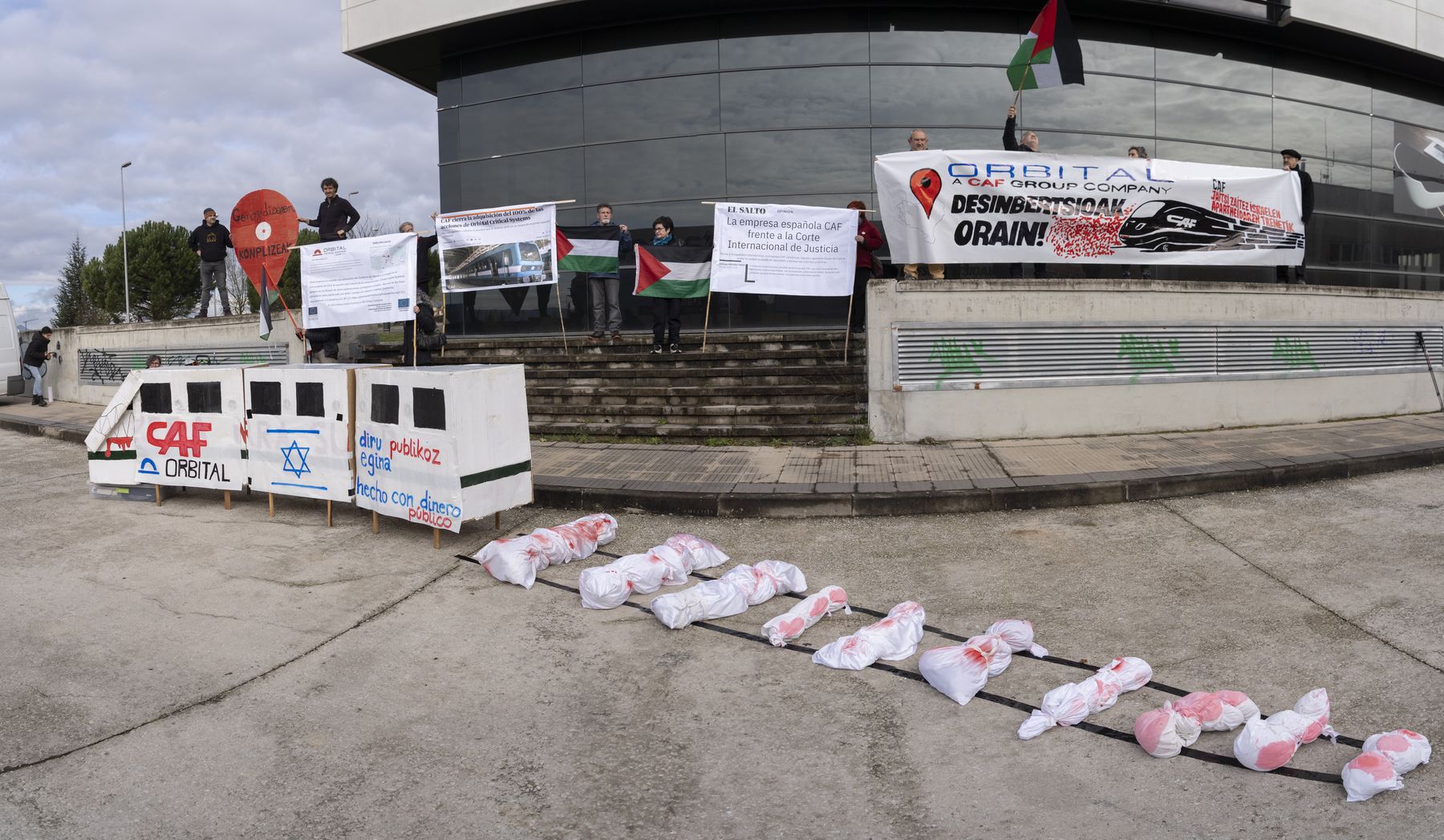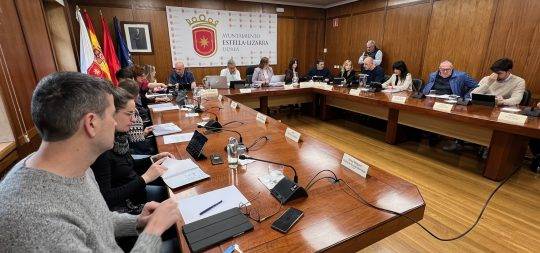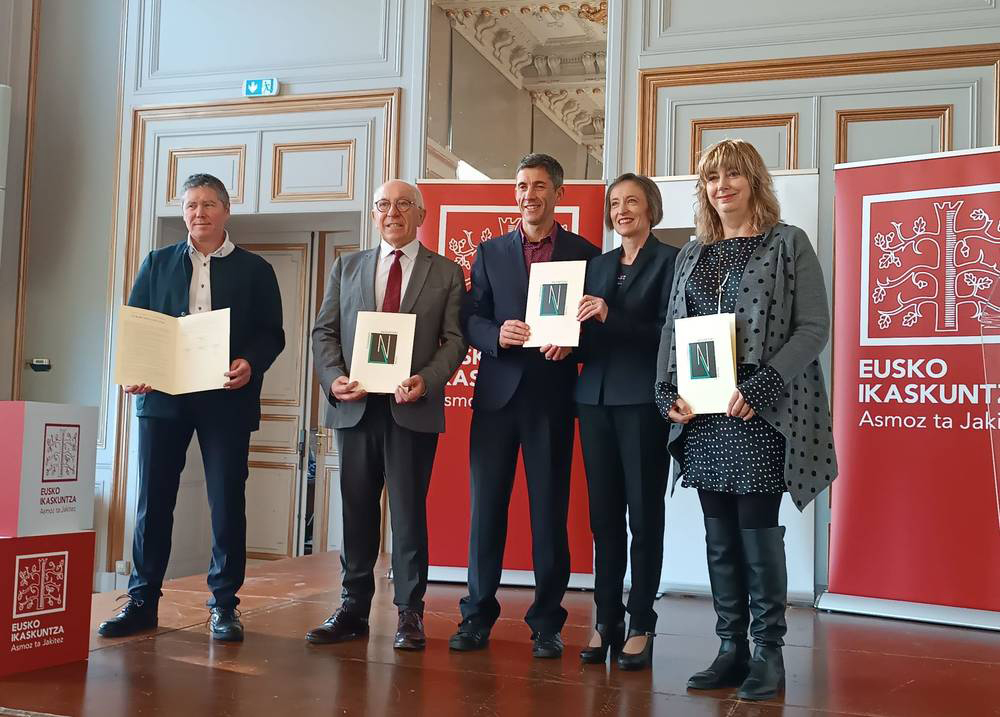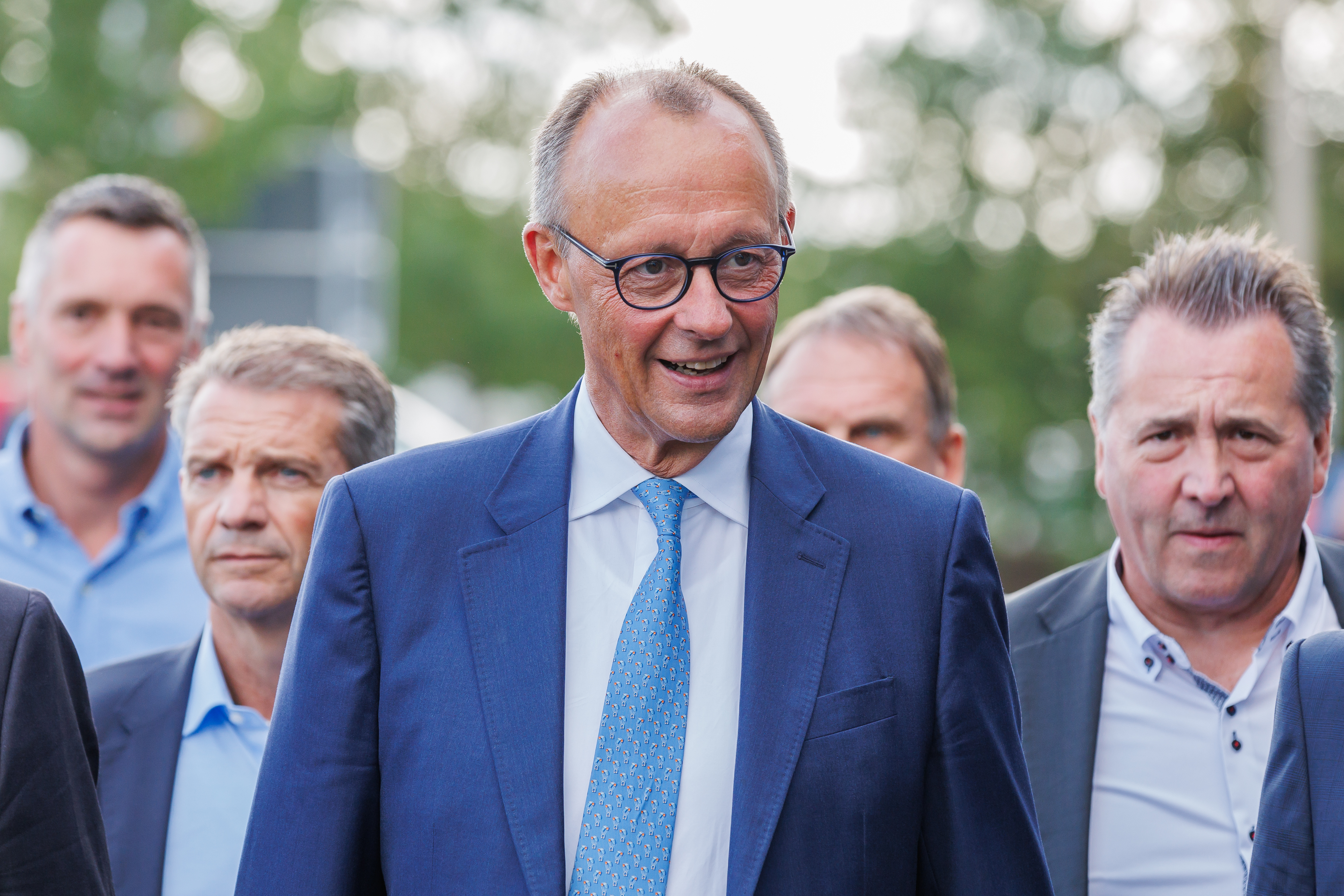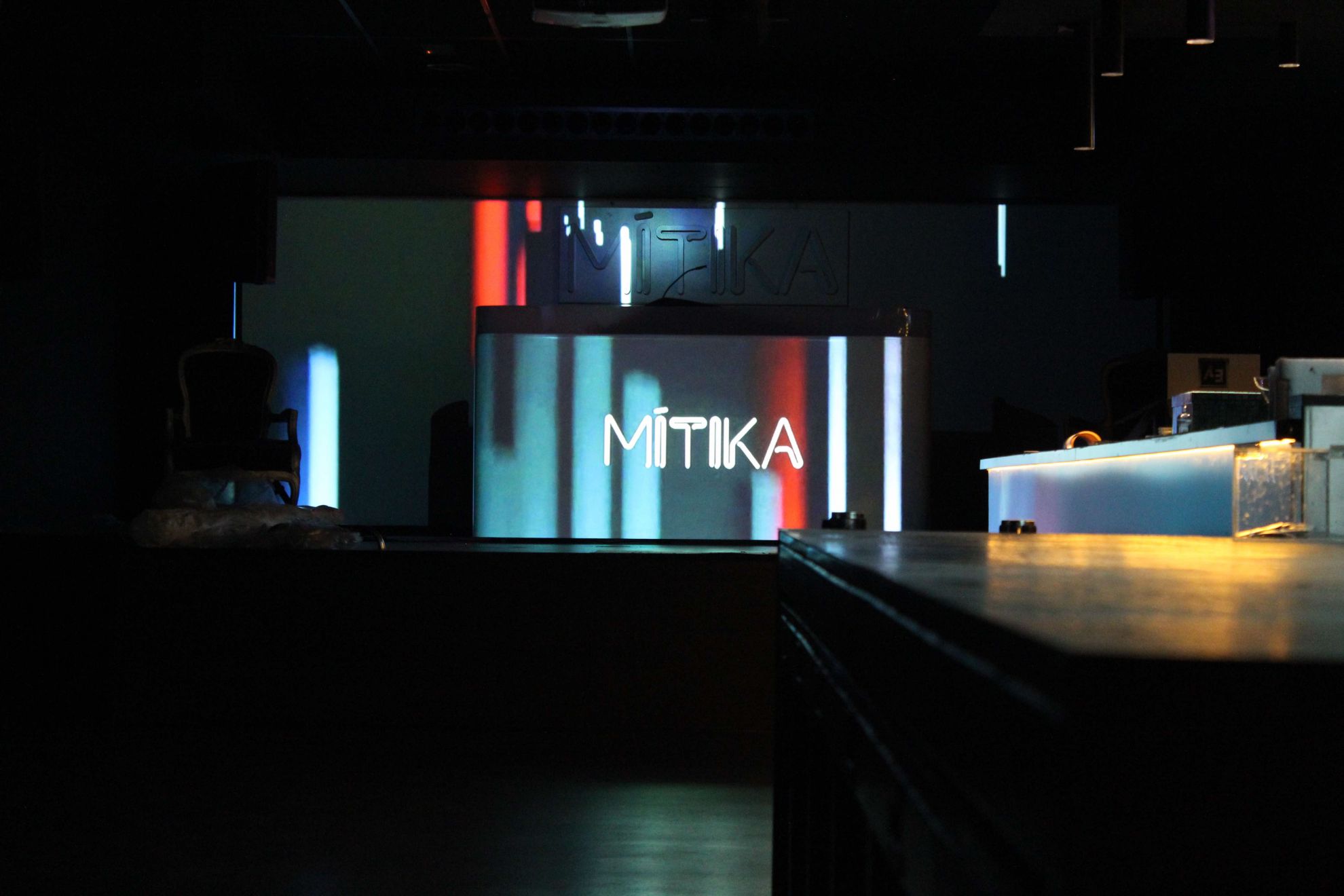“The phrase of an elderly person in the community has more value than that of the book”
- Bilbaíno resident in Irurtzun. For ten years he has lived, worked and researched in British Columbia in the local Yuneit’in tîlhqot’in community. He has completed his doctoral thesis in the process of designing and implementing the plan to revitalize the indigenous language Nenqayni ch’i and is currently continuing his research career in the Cluster of Sociolinguistics.
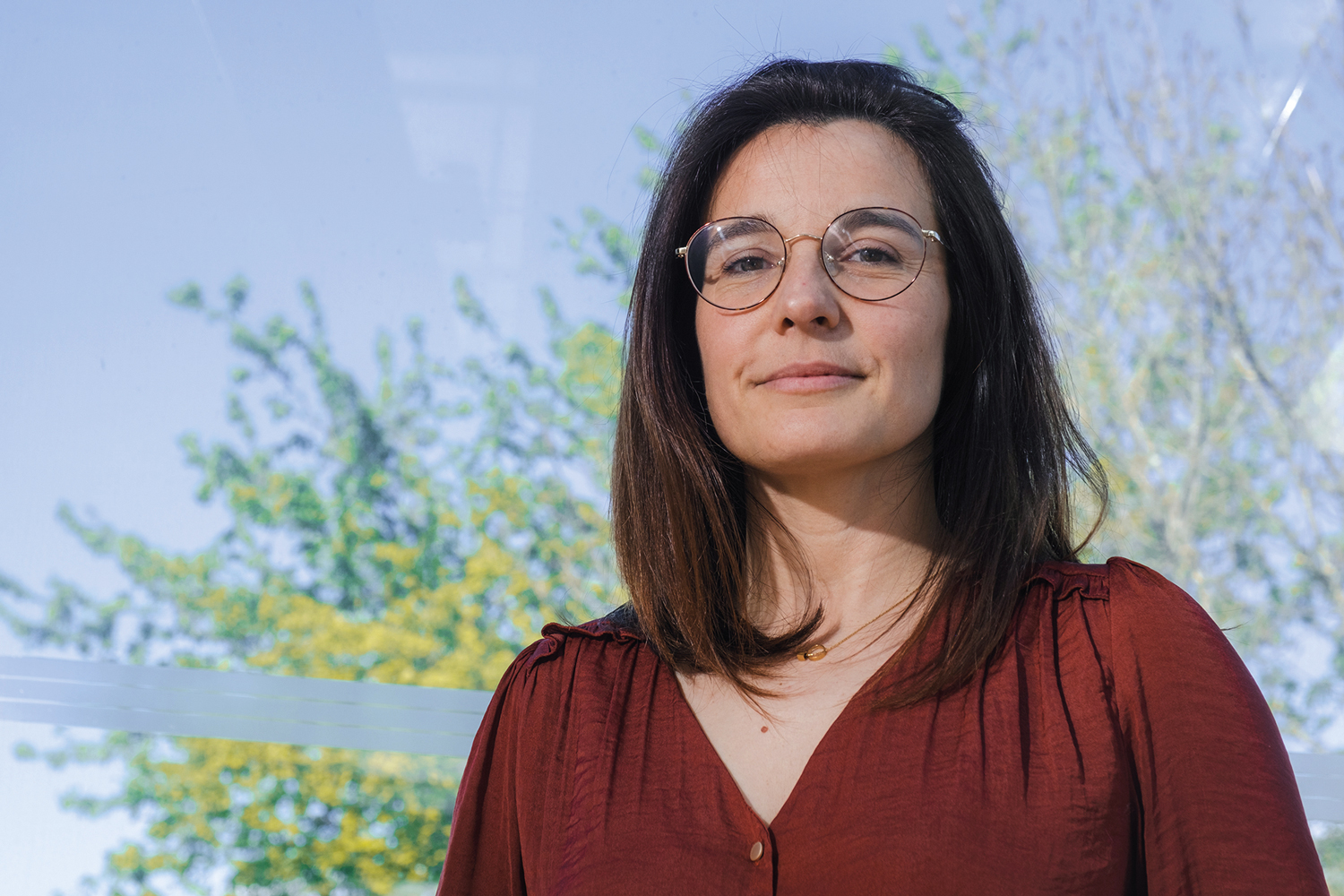
How did he come to live in a Canadian indigenous community and commit to the recovery of his language? In 2012, after completing the master's degree, I decided to move out. After five
months in Vancouver, I moved to Williams Lake for work reasons and started working in a nature school. The husband of a friend of the people worked in the tîlhqot’in indigenous government and contacted the leader of the Yuneit community, who showed
interest in my studies and their origin. I spent a year volunteering at school and learning the language. At the same time, the Canadian Government provided aid to guide the processes of revitalizing indigenous languages. From there came what would be my job: coordinator of the Tîlhqot’in linguistic revitalization project in the Yuneosit’in community. My mission was to contribute to the establishment of a language commission and to the development of the language plan. Who are the tîlogqot’ines? The territory of Tîlogqot’in is located inside British Columbia. Seven
hours
drive from Vancouver to the north. It is a relatively large territory, but the Tîlhqot’ines are about 4,500 people, of which 700 are able to speak the language. They live in six communities, and I've lived in the Yuneit community. Derived from the Act in India, established in 1866, the colonial system created reservations that have constituted the current communities.
"The transmission of language has been interrupted, but the transmission of culture is very alive"
The oppression of indigenous peoples went beyond language, right?
Colonial policy was “to kill indigenous people inside children”. They were forcibly bringing children from communities to residential schools for a minimum of a year, in some cases ten years. Many children died of suicide and illness, among others. They were obliged to speak in English if they did not receive sanctions. Sexual abuse and murder have emerged in recent years. The trauma of these experiences is very vivid. Anyone who is now over 50 years old has gone through these schools. This
trauma has led to the discontinuous transmission of language. A speaker does not decide for himself to leave his language. But sometimes it happens when language is related to pain. Although there are currently no residential classes, people who inhabit it stop talking to their children in tîlogqot’i when they enter school. And what is the situation of the native language? Like other indigenous languages, if nothing is done, there is a risk of disappearing in ten years. Whole speakers, who use language,
are ancient. The receiving speakers, who receive the language but do not transmit it, are about 50 years old. Natural transmission is interrupted, parents do not pass on to their descendants. When I started setting up language programs in school, but there's no immersion model. In most cases, they receive the language of school rather than at home, although their grandparents know and use
it. The priorities for revitalising the language are to ensure transmission and extend the immersion model.

What is the place of language in the culture of this people? In this community, at least, they are clear that revitalizing language is important. They are very
popular and are in favour of recovery. They associate it with identity and it is an important element to be tîlogqot’in. In any case, as the Basque is what makes us Basques, what makes you in tîlogqot’is the territory. You have to have a relationship with the earth, and you need language to talk to it. Young people who do not master the Tîlhqot’in language feel that they lack that part. When speaking of indigenous languages, it is common to find the idea
of the relationship between the natural environment and the cultural environment. What does it look like? Culture and land are very united. To be Tîlhqot’in you have to do the things that the tilos do: hunting, fishing, fruit harvesting… Spiritual ceremonies are also
a fundamental element. All of this is land related. The transmission of language
has been broken, but the transmission of culture is very lively. Is that spirituality an independent religion or is it linked to Christianity? There is a mixture. The oldest
are believing Christians, but young people are not. And they have their own spirituality. They speak of the “creator”, as referring to a god, but in his spirituality the importance is the relationship with the ancestors and nature.
"We have to make a personal process for some Basques, like some indigenous people, to overcome trauma, prejudice or guilt."
How does the relationship between the indigenous character and the way of life of Western society live? There's everything. They live in Western society, have off-road vehicles and buy at the supermarket. The “tîlogqot’in”, which lived in a store, lives immersed in its culture… But they do not want to give up some of the possibilities offered by Western society, such as going to university. They distinguish between the “indigenous people of the city” and the “indigenous people of the community”. It was also an
important issue in the planning process of linguistic revitalization. How do we recover our culture and use Facebook for it? For some, this is wrong. For most young people, they don't. But the songs of tîlhqot’in, for example, don’t want to put them on the Internet because they
are from the community and some are sacred and have the feeling of losing property. What is the framework of the linguistic and
cultural policy of the peoples of origin in Canada and British Columbia? In 2007, the Agency for Recognition
and Reconciliation was created to channel the relationship between government and indigenous peoples. They set up subsidy lines, the Truth and the day of reconciliation have set up a national holiday and have asked for forgiveness from the tîlogqot’in people for killing and hanging their bosses in Parliament.

Politically, things are changing and you see, but in communities, these changes
are not so much in practice. They feel dependent on the government and ask for more. What is the unity among indigenous peoples to speak and negotiate with the government, for example? The struggles among indigenous peoples have taken place through territory and resources, but today there
are organizations that most indigenous peoples share. Through them, they negotiate with the
federal government on climate change, the health conditions of communities… And who are the representatives of indigenous communities?
Each of the six communities in Tîlhqot’in has
its own government, its head and its advisors. And then there's the government of all the tîlogqot'in. In some things, the head of tîlogqot’in represents all the people, but he is usually a group of leaders from all the communities. They do not accept political borders or Canadian regions. They always try to talk about the nation to the nation: tîlhqot’in town with Canada. They do not accept mediation by British Columbia organizations. In addition to designing and coordinating planning for revitalizing the language, he has completed
a doctoral thesis on this process. How does the opportunity arise? At the beginning of the planning process, we had to conduct research to get
a diagnosis, to know how many speakers there were and what resources were there to do it, among others. We saw the opportunity to understand it as part of broader research. In addition, we tried to understand the objective conditions and perceptions of the community. I contacted and acceded to the doctoral program in Basque Linguistics and Philology at UPV/EHU.
"My role is to manage and ensure that work has academic value, but knowledge is people's"
You have used some typical research techniques for us, but also indigenous methodologies. What are those? This arises from a crisis. I was a community member in my life, but we were researchers and investigators in research. I wasn't comfortable. I spent over a year developing the methodological framework, looking for solutions. In recent years, indigenous researchers in Canada were in effect and I had direct knowledge of them at conferences and similar. The role of the researcher is to manage and ensure that the work has an academic value, but the knowledge is of the people and the focus is based on their global vision. I've taken into account how community things are done, protocols, etc. It is very important that the results are generated from their point of view to
be useful. Besides contributing in the academic field, the study should also contribute in the practical field: translating the results to the community and causing changes in
it. The research methods you've used are based on common community dynamics. What do they use them for? When working in school, for example, I used some dynamics that they use on a daily basis. For example, shared circles. That's not sitting in the circle and talking. It is a whole ceremony, with protocol, with songs, with incentives… Everything is done and must be done. And it is understood that the knowledge generated at that moment is the one that emerges in our relationship, the one that emerges all together. And in the university's competitive and bureaucratic context, has it been easy to standardize these methodologies? It's a research based on subjectivity.
An older person in the community has more value than reading a book. There
are few books that gather the knowledge of the people tîlhqot’in, and most are written by writers who are not tîlogqot’in. Oral sources are very important in indigenous methodologies. It was difficult to meet the university deadlines. The university and the community speak in two different languages. In
Euskal
Herria we have another sensitivity with this subject, and in the academic field they have also been used in North America and Oceania, so we have adapted. What has contributed to what can be useful for Basque sociolinguistics? I would stress the need to look at the issue of language holistically. Language in relation to culture, people, land, family and health. Understanding as
a multilevel transformation process. Understand the relationship with language and understand life or relationships. For example, they understand that the
mental and physical health of the person recovering the tongue is improved, and that the healthy person is better able to recover the language. Have you seen analogies between Basques and tîlogqot’in? I've seen it from the beginning. My current situation and my lifestyle are
closely related to my linguistic biography. My great-grandfather was the last Basque in the family, until I studied. I attended Model A and then studied in the Basque Country. I am the result of the process of revitalizing the Basque Country, and that has been my lifelong interest. Then I've taken him to work. In Canada, I also approached indigenous people for that interest. We have to make a personal process for some Basques, like some indigenous people, to overcome trauma, prejudice or guilt. And the role of language in knowing who you are, related to identity, is very important. Otherwise the puzzle is not complete. Canada has been looked at much more from
Euskal Herria because of the linguistic conflict between English and French and because of the linguistic policy of Québec. How does this relate to indigenous languages? For indigenous people, French and English are colonial languages. They don't understand the recovery of French. They see it far from its reality. Furthermore, in
Québec the situation of indigenous languages is not good and there is no guarantee that they are sensitive to indigenous languages with people who
are sensitive to the situation in French. Canada has twelve language families and over 60 languages, 60 per cent of them in British Columbia. It is very difficult to implement the official language. In some territories some languages of the Inuit family are official. The presence of indigenous languages in other territories is recognized, but without official status or guarantee of linguistic rights. There are also many migrant languages that need to be
managed properly.
Ikerketa bat egin dute Alemanian, hauteskundeen atarian: kontuak sortu dituzte TikToken, X-n eta Instagramen, eta aztertu egin dute algoritmoak zer nolako edukiak erakusten dituen. Guztietan, algoritmoak eskuinera eta eskuin muturrera jotzen du gehien, TikToken nabarmen.
Laborantzaren Orientazio Legea pasa den astean ofizialki onartu du Frantziako Parlamentuak. Ostegunean Senatutik pasa da azken aldikoz. Iazko laborarien mobilizazioen ondotik, aldarrikapenei erantzuteko xedea du lege horrek. Aldiz, ingurumenaren aldeko elkarteek azkarki salatzen... [+]
Hizkuntza bizia orain! egin dute oihu galizieraren aldeko milaka manifestarik Santiago de Compostelan (Galizian) joan den igandean. 2024ko hondarrean, azken inkestako datuek pozteko arrazoirik ez zuten eman: ezagutzak eta erabilerak, biek, egin dute atzera. Galera handiagoa da... [+]
Etxera itzuli ahal izan diren arren, joan den azaroan kaleratu zuten Astrabuduko familia berriz ere arriskuan dago. Uribe Kostako Etxebizitza Sindikatuak salatu du mailegu-enpresa berriz ere saiatzen ari dela kanporatzea gauzatzen, oraingoan, desokupazio-enpresa bat... [+]
Ekitaldian, Mileik motozerra bat oparitu dio Muski, murrizketa sozialen sinbolo eta aldarri gisa.
Karen Daniela Ágredok dioenez, zortzi bat ordu eman zituen ziegako zoruan etzanda Ertzaintzak ospitalera eraman aurretik. Segurtasun sailburu Bingen Zupiriak berak eskatu du Eusko Legebiltzarrean agerraldia egitea.
Hamahiru ZirHika kide batu dira hitanoaren erabilera aldarrikatzeko eta antolakundearen ekintzen berri emateko. Azalpenak Badihardugu elkarteko Idoia Etxeberria eta Galtzaundiko Uxoa Elustondok egin dituzte. Horiei, Andoni Egaña eta Amaia Agirre bertsolariak eta... [+]
Administrazio Epaitegiak arrazoia eman dio EH Bilduk Lizarrako plantilla organikoaren hizkutnz profilen aurka jarritako helegiteari.
Yala Nafarroak deitutako manifestazioan 2.000 pertsona inguruk hartu dute parte eta Iruñeko hainbat kale zeharkatu ditu Gaztelu plazan amaitzeko. Azken irakurketan adierazi dutenez, "erokeria distopiko hori geldiarazi daiteke, askoz gehiago garelako kapital handiak... [+]
Eusko Ikaskuntzak adierazi du Ipar Euskal Herriko elkartean “gorabeherak” izan dituztela azken hilabeteetan. Bideratu bitartean marka eta egoitza erabiltzea ukatu diote. Lehendakaria ere aldatu dute.
Sozialdemokratek inoizko emaitzarik kaskarrenak lortu dituzten arren, litekeena da demokristau kontserbadoreekin elkartzea eta gobernua osatzea. Botoen %28,5 jaso ditu CDUk, eskuin muturreko AfDk %20,7 eta SPDk %16,4.
Gertakariak igande egunsentian suertatu dira 5:00ak aldera Gasteizeko Mitika diskotekan. Hildako pertsona 31 urteko gizon bat da, eta lurraren kontra buruarekin hartutako kolpe baten ondorioz hil da, antza atezainak kolpe bat eman ostean.
Jenin hiriaren aurkako oldarraldia duela hilabete bat baino gehiago abiatu zuen Israelek, geroztik 26 palestinar hil ditu gutxienez, eta milaka beren etxeetatik kanporatu. Israelgo armada Zisjordania iparraldean pasabideak eraiki nahian ari dela salatu dute, kanporatutako... [+]









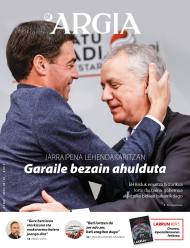


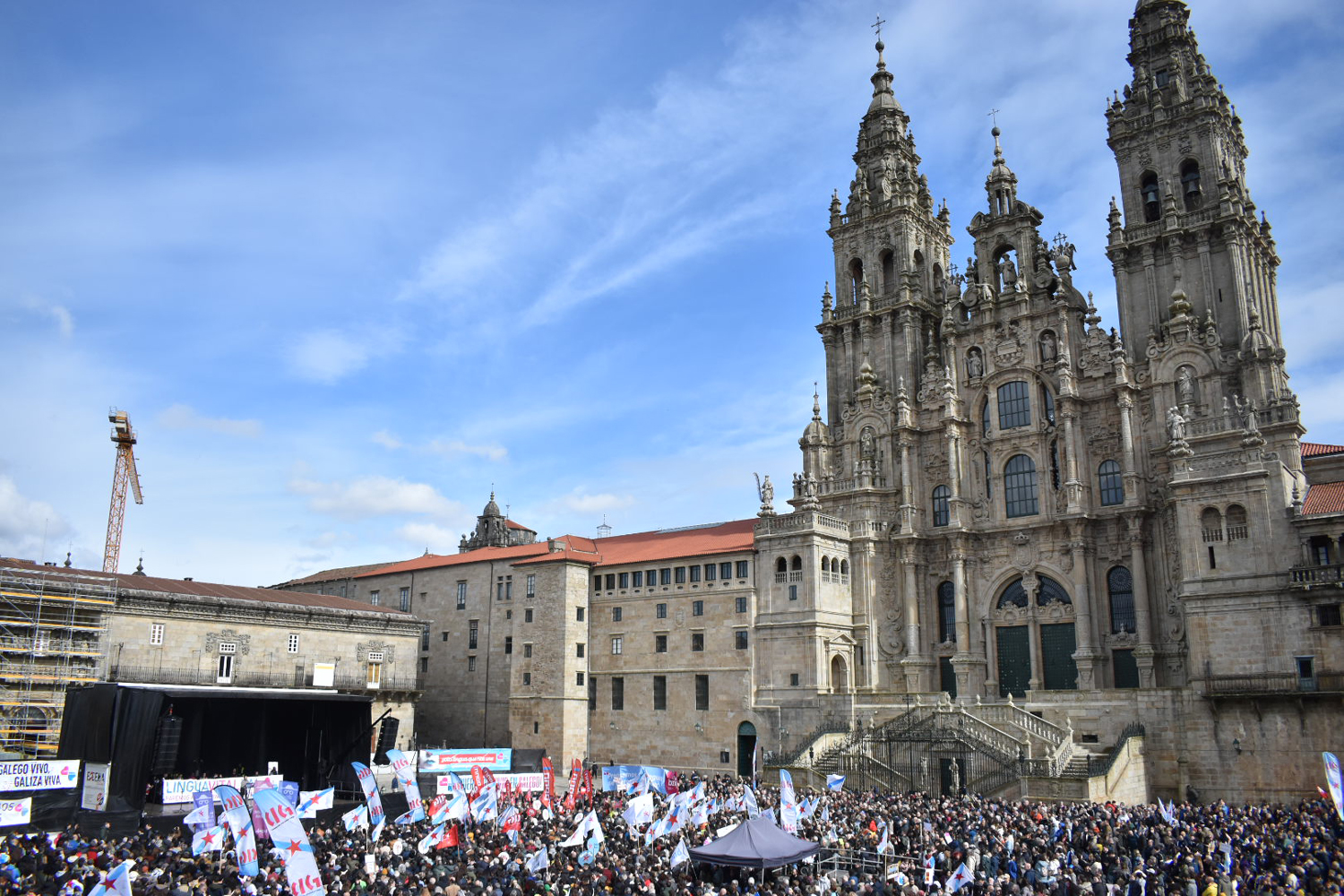
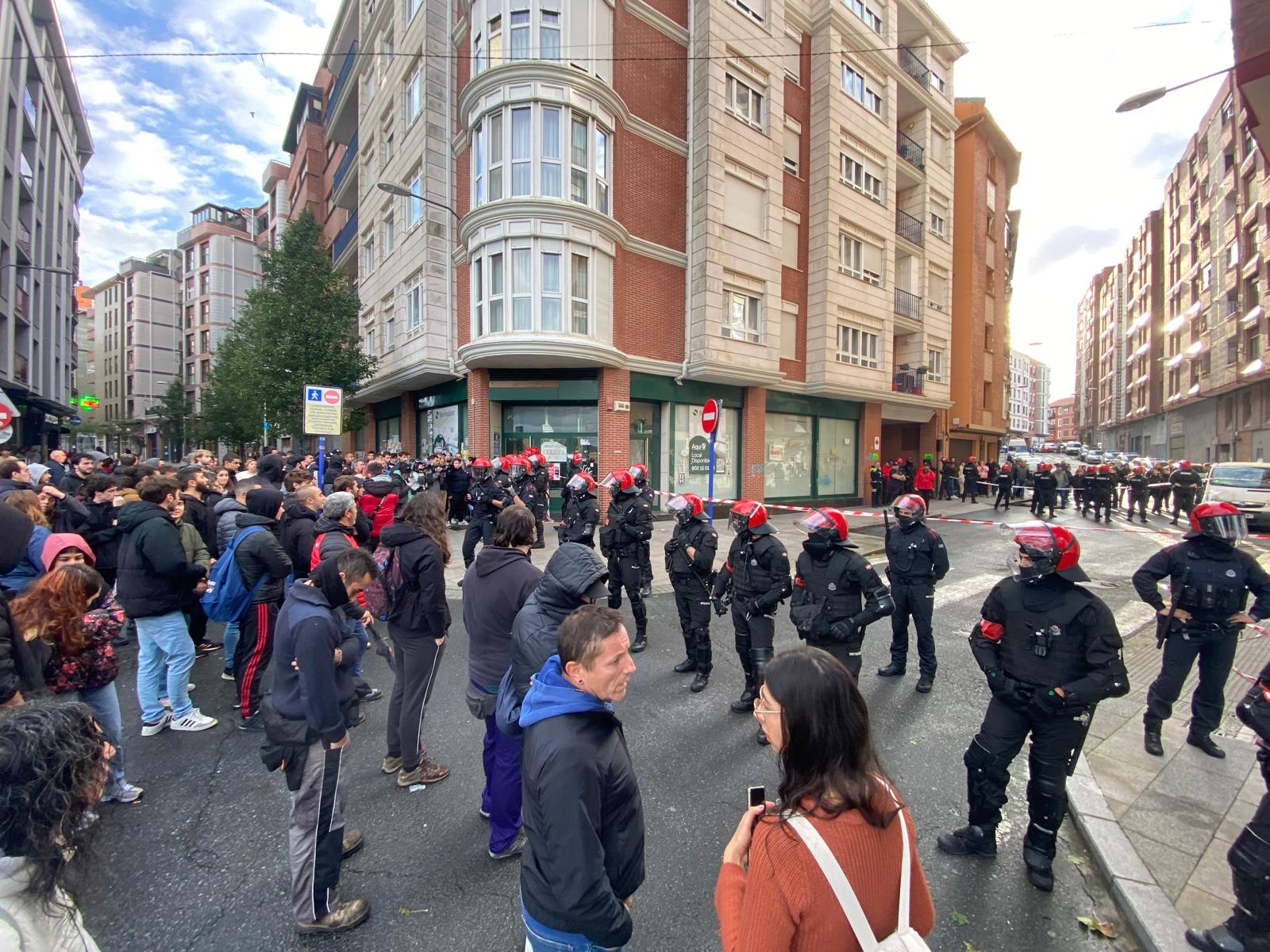

.jpg)
